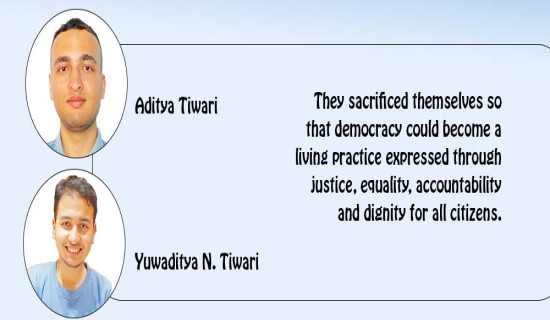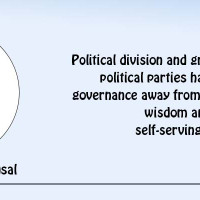- Friday, 30 January 2026
FSU Must Strive For Students’ Welfare
Tribhuvan University (TU) is set to conduct Free Student Union (FSU) elections in its 62 constituent and 1,040 affiliated campuses tomorrow (Sunday). In principle, the FSU has been established in all state-run colleges for the welfare of the students but the FSUs’ nationwide polls being held after 14 years will also serve as the political barometer as the students’ organisations are sister wings of various parties. The poll outcomes reflect the strength and popularity of the parties that have witnessed various ups and downs in the last one and a half decades.
The FSU election is a democratic exercise in which students elect their representatives to support them for academic endeavours. It helps them build their leadership capacity while providing a platform to raise voice for common concerns. The elected representatives serve as a bridge between the students and the administration to advance their collective rights and interests. The FSU elections have played a significant role in shaping the student politics and promoting democracy and rule of law. It has become a viable means of spurring students’ activism and producing many notable leaders who have risen to national politics.
Inclusive environment
The FSU represents the interests of students in various forums and interacts with the administration, faculty, and government on behalf of the student bodies. It works to create a safe and inclusive campus environment. Likewise, the unions assist students financially and academically. The unions organise various activities and events that promote social, cultural, and educational life of students. But, the FSU has also come under fire for its involvement in financial irregularities. It has allegedly been engaged in getting the tenders related to building big physical infrastructures.
In Nepal, student unions have been an integral part of political movements in the past as well as present. Major political parties, including the Nepali Congress, the Communist Party of Nepal -Unified Marxist-Leninist (CPN-UML), and the CPN-Maoist Centre, have their own student wings, namely Nepal Students' Union, All Nepal National Free Students' Union (ANNFSU), All Nepal National Independent Students' Union Revolutionary (ANNISU-R) that are now contesting the elections. The students’ bodies close to the ruling parties have forged alliance across the country. Therefore, FSU polls are also taken as mini election.
Unlike in the past when the old-age student leaders used to contest polls but now the TU has introduced the provisions of age limit for standing in the polls and the mixed electoral system. The age bar of the candidate is 28, which aims at promoting young students in politics. This is the first nationwide poll following the enforcement of these two provisions. In 2017, the TU had held FSU polls partially.
Corruption is reportedly rife in the FSUs. As a result, they are losing trust and credibility among students and other stakeholders. The campus administration allocates certain amount of fund for the welfare of the students. There are growing complaints about the misuse of the fund and involvement of FSU representatives. Now it is a major challenge for the new FSU leadership to fight corruption and avoid all sorts of controversies.
Likewise, the major political parties have been accused of interfering in the FSU polls to get their sister wings elected. The parties use their resources and organisational strength to influence the election outcome, which undermines the democratic process. The FSU polls also see the incidents of violence and intimidation. Candidates and supporters of different students’ unions get involved in blame game and violent clashes during the election process, which can prevent them from exercising their democratic rights freely. In the absence of transparency, students lack trust in the poll process.
Despite the importance of FSU elections, students’ participation in the election is often low, which shows their indifference to the politics in the educational institutions. These downsides call for reforms in the FSU polls to ensure that elections are held in a free, fair, and transparent manner so that the FSUs become the guardian of all students irrespective of their ideological and economic backgrounds.
Autonomy
The FSU should be independent, autonomous and free from any political or economic interests that may seek to influence or control its activities. It should be able to freely express the opinions and concerns of its members, without fear of censorship or repression. It should be representative of the students’ body, while elected office-bearers must be accountable to the students. Their activities and decision-making process need to be transparent.
In the changed context, the FSU should be inclusive and represent the students from diverse social groups, including those from marginalised communities and underrepresented classes. It is imperative for the FSU to collaborate with other student organisations, civil society groups, and academic institutions to promote common goals and interests. By embracing above ideas, the FSU will evolve into responsive organ of the TU, thereby contributing to creating sound academic atmosphere and solving pressing needs of the students.
(Dhakal is a TRN journalist.)

















